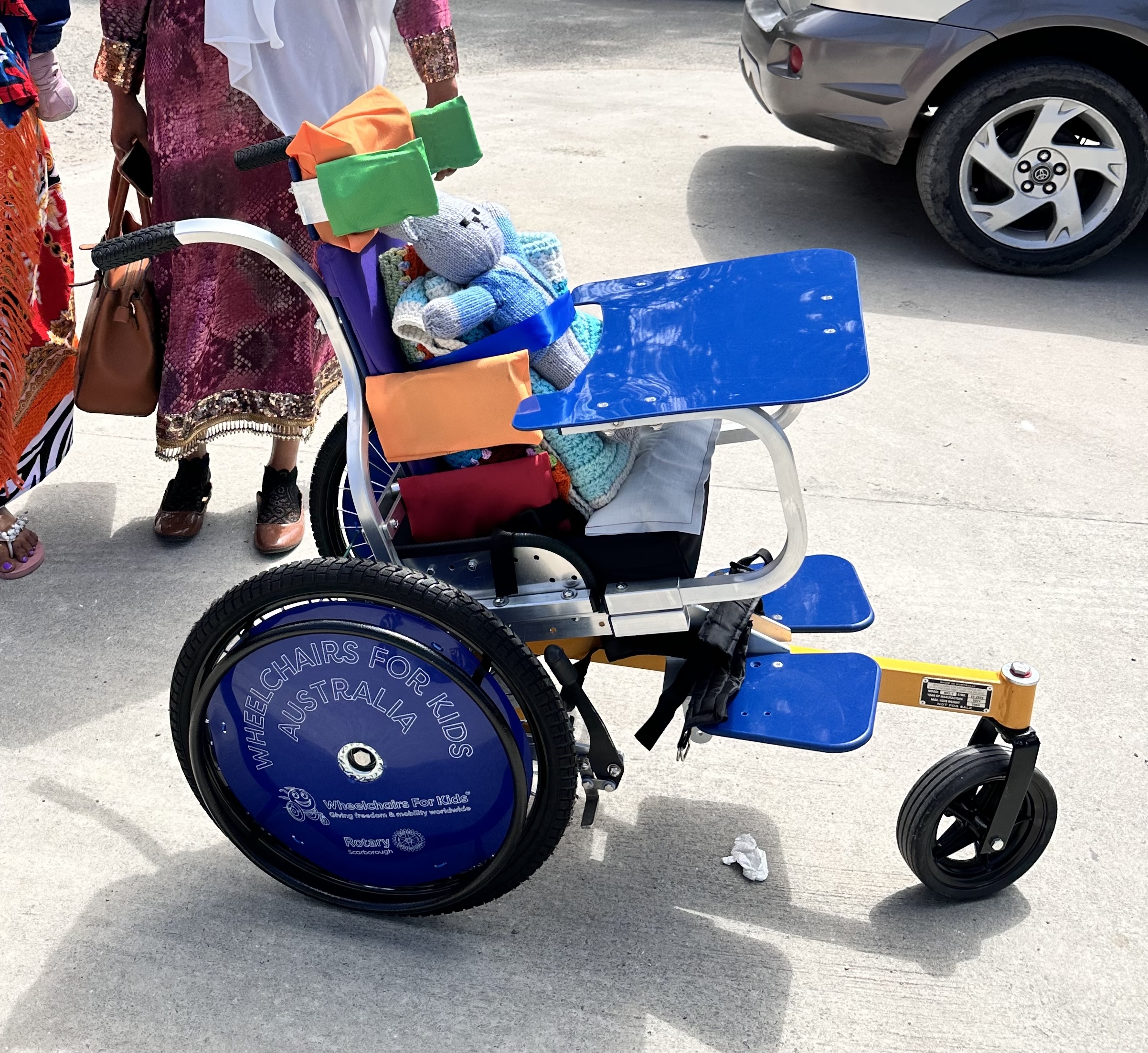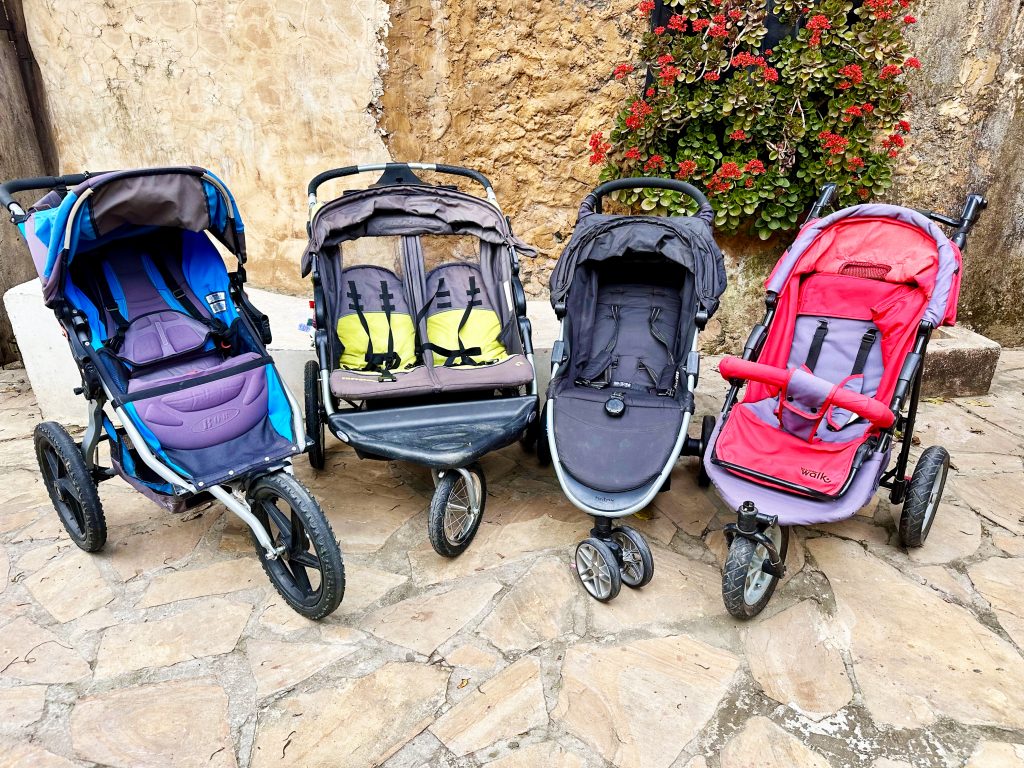We have begun supporting an increasing number of families and children excluded from education and healthcare, for example, by providing health insurance coverage, assistance with hospital visits, medical examinations, medications, therapies, and mobility aids. In Bagamoyo, there is no government support or financial assistance for families with children with severe disabilities. Healthcare is not free, and families living in poverty struggle to cover basic needs such as food, rent, clothing, and medical bills – let alone costly therapies, medical aids, accessibility devices, or procedures.
Mobility is essential for inclusion. Without the ability to sit up or move around, children become isolated from their communities, schools, friends, and families. We were excited to secure a pediatric wheelchair for another boy. Patrick, a quadriplegic 4-year-old, lives with his parents and two older siblings. His family’s home is large enough for a wheelchair, so we arranged a specialist assessment at CCBRT hospital in Dar es Salaam and procured a pediatric wheelchair. The durable wheelchair, suitable for Bagamoyo’s sandy roads, came with a full toolkit for adjustments over the next ten years!

However, we also realize that many low-income families live in cramped, shared housing with literally no space for wheelchairs. To adapt, we organized lightweight, foldable, high quality off-road strollers suitable for their environment, helping more children stay mobile and included in the community.
7-year-old Zuwena has severe physical and intellectual disabilities and has undergone multiple surgeries already. She cannot walk, transport to school is costly, and her heavy weight makes it difficult to carry her even though she lives close to school – so we arranged a large off-road twin stroller and had a local fundi (craftsman) modify it to comfortably fit her, enabling her solo mother to transport her to school.
We also provided strollers for three boys aged 2 and 3 with cerebral palsy. Abdul, who can’t sit or walk independently, requires regular hospital visits. His mother, the sole caregiver, must transport him; since she just had another baby, she cannot carry both children. The foldable off-road stroller was perfect for him.
For Tito, the stroller has improved community integration: he loves being pushed around by his sister, neighbours peek in to greet him, and he enjoys sitting and watching the service and dancing at the community church.
Daudi recently suffered from recurrent infections and seizures, leading to extended hospital stays. His extremely dedicated yet exhausted mother spends many days at the hospital while caring for four other siblings, so the stroller to help care for him came in as a much welcome support.

